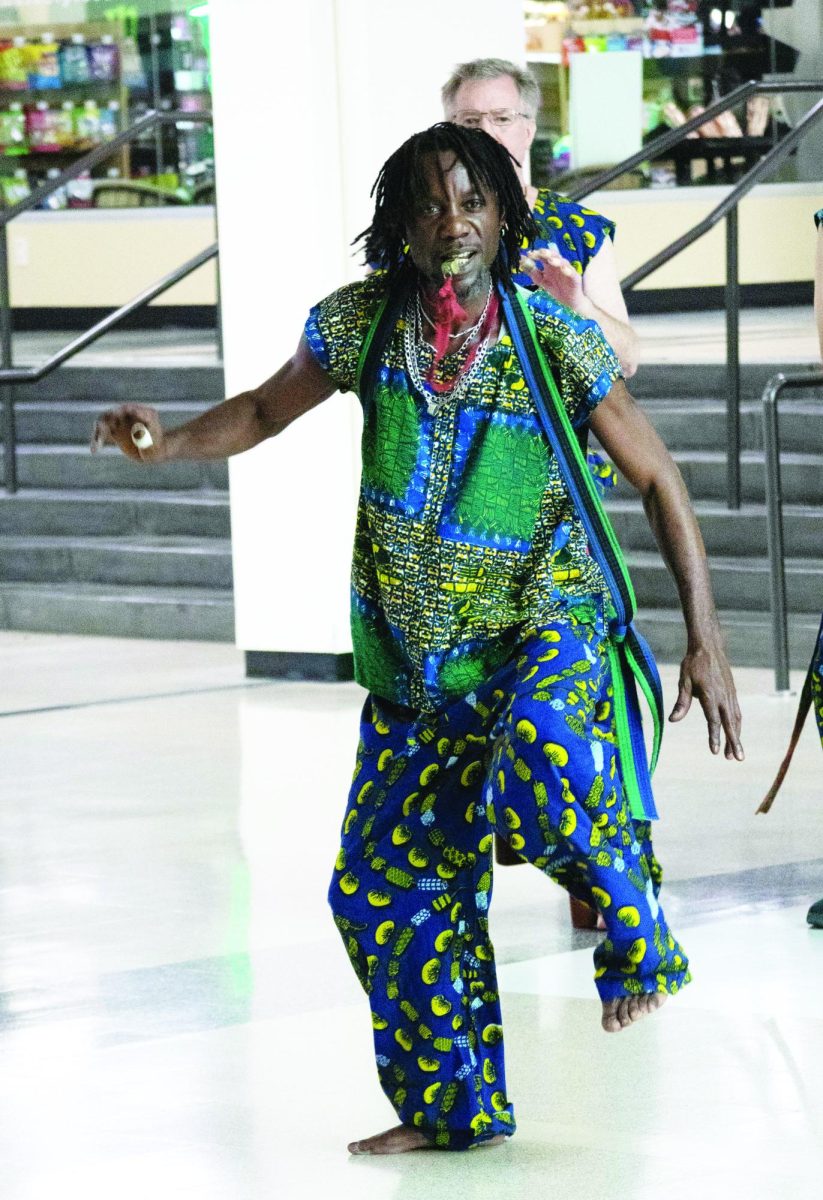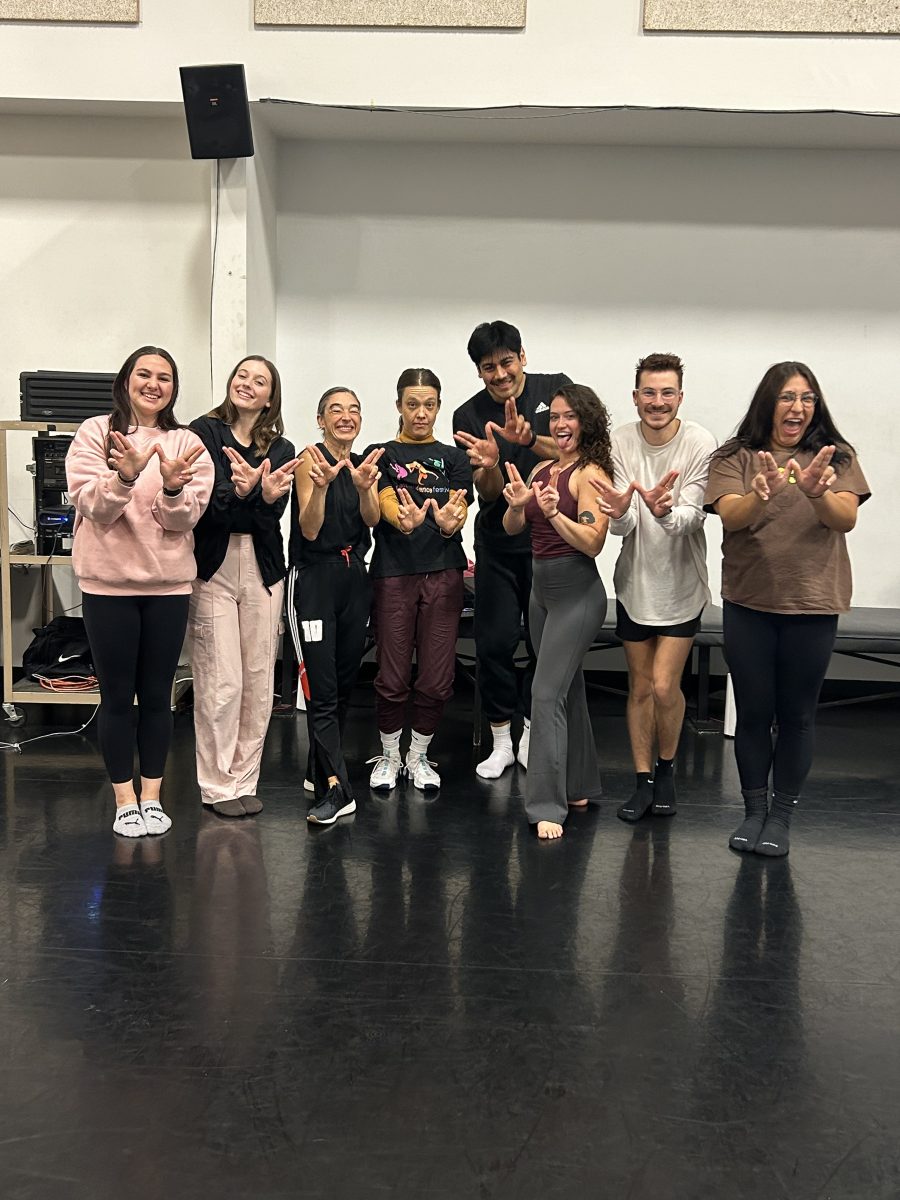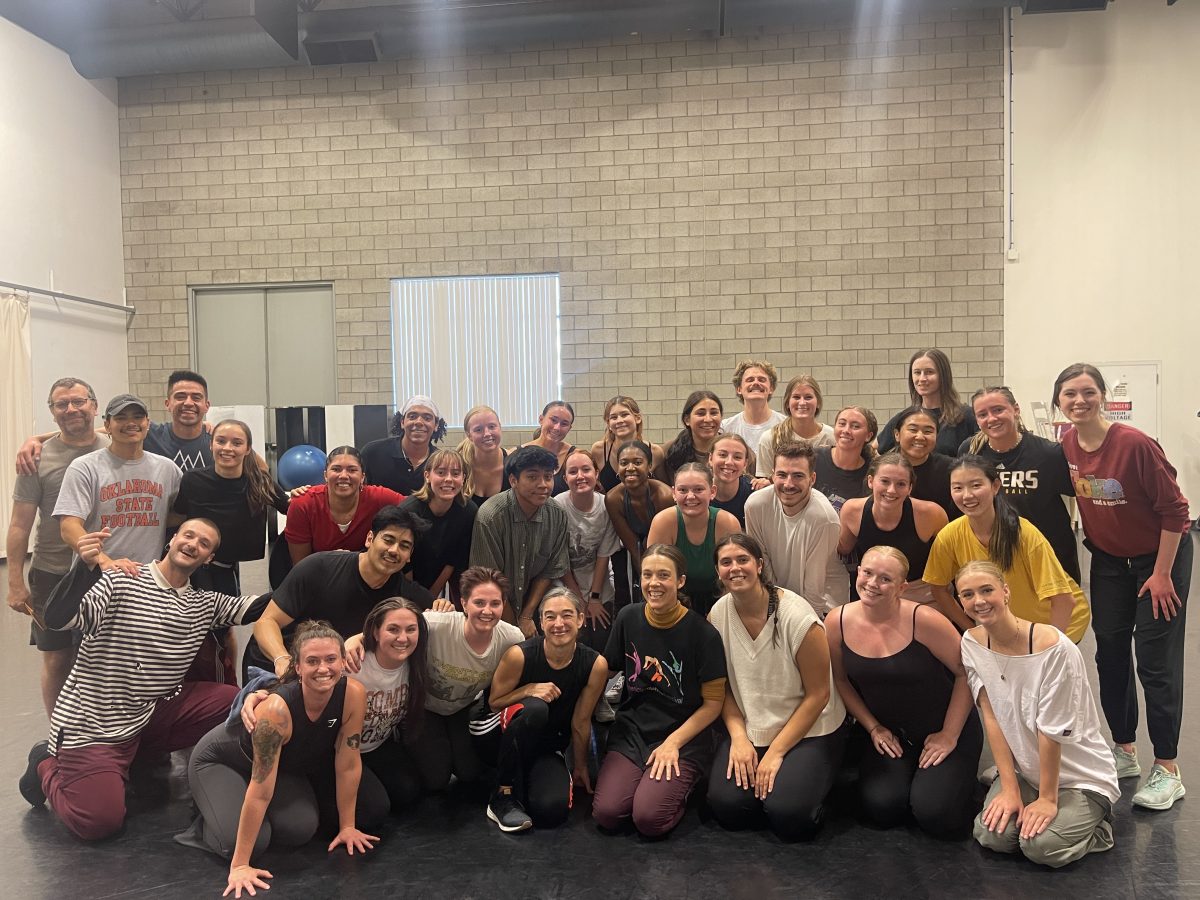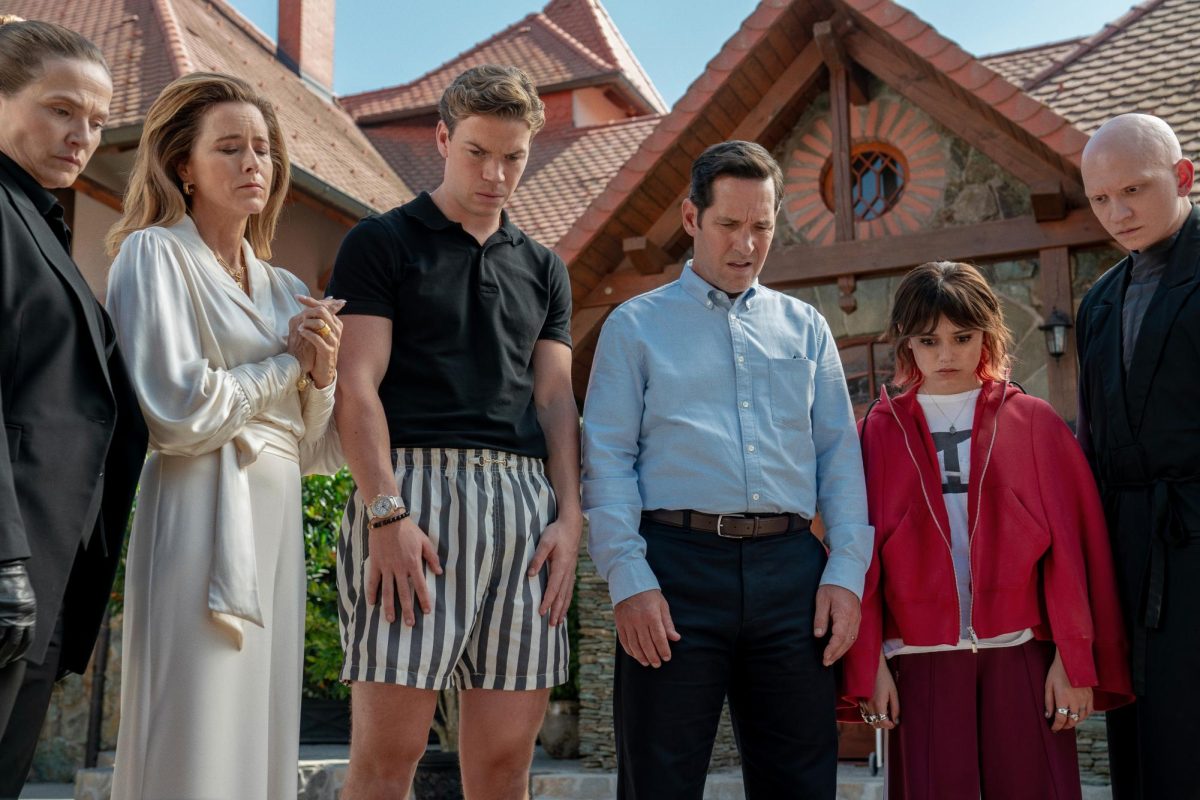Dr. Rennie Harris spoke to students on Feb. 5 in the Shepherd Union about the history of hip-hop music and dancing.
Ikwo Frank, president of Black Scholars United, stated that this event was in honor of Black History Month.

“This event won’t just have Weber State students, we have dance students from Ogden High (School) and Ben Lomond (High School),” he said.
Twenty years ago, Harris founded “Rennie Harris Puremovement,” a dance company that has performed with several hip-hop stars.
Harris dedicated his life to dancing at a young age. He grew up in Philadelphia where the hip-hop scene found its humble beginnings.
“Before there was ever a term ‘hip-hop,’ we were doing what we were doing … there was no name for it,” Harris said.
He began a dance group called The Scannerboys who would open for groups such as Salt-N-Pepa, then called Super Nature, Grandmaster Flash and the Furious Five.
After his time in The Scannerboys, Harris auditioned to be a part of Fresh Festival, the first rap tour to go cross-country. This tour aided his career and let many people know of his talents.
“It took me a long time to realize that I could get paid to choreograph as well as dance,” Harris said.
His first paid gig was booked a year in advance. Harris received $750 before the event and was promised another $750 afterwards. After his first professional gig, he decided to stay with choreography.
When he finished speaking about his own personal history, Harris spoke of the history of hip-hop as a whole.
“When we talk about street dancers, (they) came out of gang culture. Most of (my generation) came out of a gang. But we could dance, and that actually became hip-hop culture,” said Harris.
While talking about the early days of hip-hop, Harris also talked about the popular topic of police brutality.
“Most of these gangs will say they started to protect themselves from the police. The police brutality, still crazy today, was even worse back then. We were just coming out of civil rights, meaning that we were just coming out of segregation,” said Harris.
Harris claims that hip-hop has three laws: individuality, creativity and innovation.
From the clothes you wear to the dance you just barely did, the pressure to change and be “fresh” is immense.
“Hip-hop culture is a progressive culture,” Harris stated, “to be creative, to be innovative, to change how you see something.”
Harris said that the biggest challenge in his career is other people. “Everyone loves you when you were all struggling together, but as soon as they think you have a little bit more than them, then all of the sudden, you’re the enemy. You become the evil empire.”
While talking mainly about hip-hop’s earlier days, Harris also talked about his opinion of modern hip-hop.
“We have become elitist about our hip-hop—black and white. We have been trained to look for a spectacle,” Harris said, “I think that (modern hip-hop) sucks … I come from a different era where there was a grittiness about it.”
Harris later talked about how he believes that hip-hop is constantly progressing and will never return to its “roots” sound.
After the event, Cesar Lecuona, native Californian who was visiting his girlfriend said, “I thought it was just going to be a lecture on hip-hop dancing and I was just going to stay for a minute. But then he started talking about hip-hop music and its history. That’s when I decided to stay for the whole thing.”
Lecuona also stated that his personal background in hip-hop fueled his desire to learn more about the culture from Harris.
Harris has built a strong legacy and continues to expand it.
He is currently writing a memoir-style book titled, “The Fifth Element” about the history of hip-hop dance and culture.


















